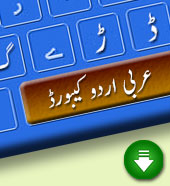Live Makkah
Live Madinah
Urdu Font Download
Latest News:
Padubidri: Fishing boat capsizes; all 7 fishermen on board rescued Alleged atrocity on lawyer: Punjalakatte SI suspended Moral policing at jewellery shop: 4 arrested Bajrang Dal activists try to assault youth, girlfriend in Mangaluru SC to hear Bilkis Bano’s plea against release of 11 convicts on 13 Dec Nusrat Noor: First Muslim Woman to Top Jharkhand Public Service Commission
Latest News:
Padubidri: Fishing boat capsizes; all 7 fishermen on board rescued Alleged atrocity on lawyer: Punjalakatte SI suspended Moral policing at jewellery shop: 4 arrested Bajrang Dal activists try to assault youth, girlfriend in Mangaluru SC to hear Bilkis Bano’s plea against release of 11 convicts on 13 Dec Nusrat Noor: First Muslim Woman to Top Jharkhand Public Service Commission
SC refuses to issue any directive curbing communal reporting on Markaz incident

New Delhi, 14 April 2020 [Fik/News Sources]: The Supreme Court on Monday refused to pass any interim order to stop “communal and irresponsible” reporting carried by a section of print and electronic media in connection with the recent Nizamuddin Markaz incident. Taking plea that it “cannot curb freedom of press” the apex court asked the petitioner (Jamiat Ulama-i-Hind) to implead the Press Council of India (PCI) as a party to the case and posted the next hearing after two weeks.
A three-judge bench headed by Chief Justice S A Bobde heard the matter through video-conference and said it would not pass any interim order in the matter at this stage.
“We cannot curb the freedom of press,” the bench, also comprising Justices L Nageswara Rao and M M Shantanagoudar, told the counsel Ejaz Maqbool appearing for the petitioner who prayed the Court that there was violence due to the constant news reporting around the Tablighi Jamaat episode.
Maqbool persisted with the Court that in Karnataka, there have been incidents of violence owing to the reportage, and those names of people have been made public.
In response, CJI Bobde stated that if it was a question of killing, defamation “then your remedy is somewhere else,” but “if it’s a question of larger reporting then PCI has to be made party.”
The Petition stated that reports on the Tablighi Jamaat by certain sections of print and electronic media have “demonised the entire Muslim community.”
It further stated that the demonization campaign has led to serious “threat to life and liberty of Muslims”, and has thus led to the violation of their “Right to life under Article 21.”
Most of the reports presented the facts in a twisted manner, using phrases like “Corona Jihad”, “Corona Terrorism” or “Islamic Resurrection”.
While listing “several social media posts” which “wrongly showed Muslims doing deliberate acts to spread COVID-19,” the petition argued that if there is any delay in ordering a directive to stop communal reporting regarding the Markaz issue, it would only “promote ill-will, enmity and hatred towards the Muslim community in India.”
One of the fake social media posts highlighted in the plea was a mass Muslim religious gathering where an act of “mass sneezing” was reported. However, the petition has given links to fact check reports highlighting how it was a Sufi practice which was falsely reported as an effort to spread the Coronavirus pandemic.
It has sought directions to the Centre to stop dissemination of “fake news” and take strict action against those responsible for it.
The petition noted that while such reports demonising the Muslim community have flooded social media, platforms like Twitter have taken no action in accordance with their standard practice and guidelines.
It reminded the apex court that such fake reports were also the violation of its March 31 order directing the media to publish “official version of reports” dealing with the COVID-19 outbreak.
Citing all these, the petition prayed to the Court to direct the media to maintain a strong sense of responsibility and ensure that unverified news capable of causing panic would not be disseminated.”
It goes on to highlight that the recent Delhi riots was one of the “worst communal riots in the Union territory’s history” and that communalising the Tablighi Jamaat meet puts the “law and order situation of the entire state” at risk.
However, the bench observed that “If it is a question of killing or defamation, then your remedy lies somewhere else. But if it is a question of larger reporting, then Press Council of India has to be made a party.”
The case is now likely to be heard after two weeks.
Prayer Timings
| Fajr | فجر | |
| Dhuhr | الظهر | |
| Asr | أسر | |
| Maghrib | مغرب | |
| Isha | عشا |







